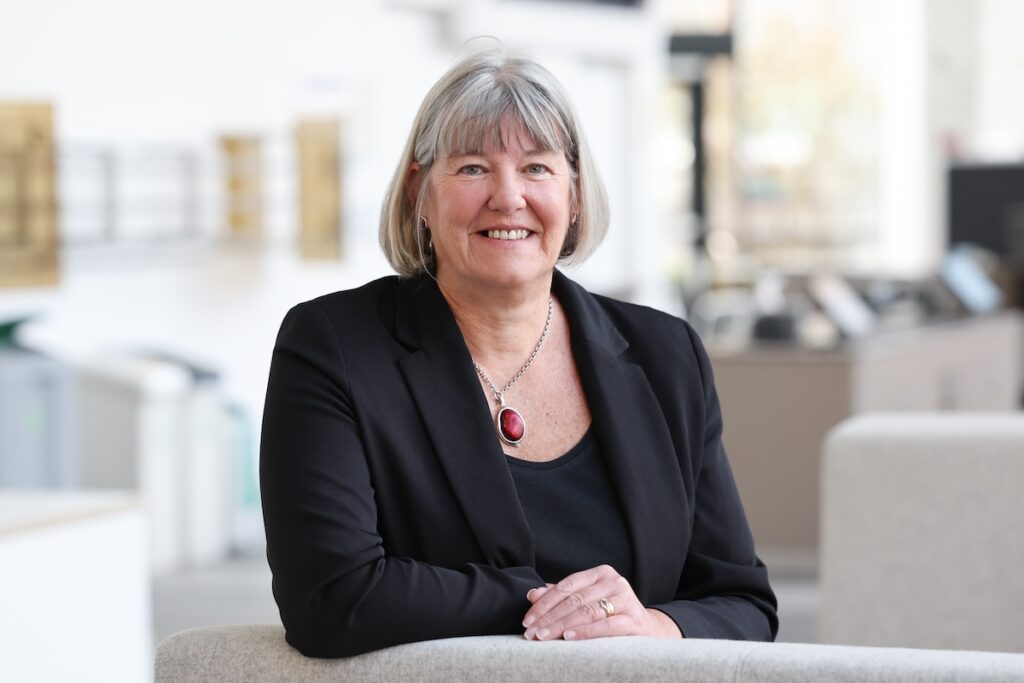Digital inclusion stands as a crucial avenue for addressing the widening health disparities in Scotland, emphasised a senior healthcare leader.
Mary Morgan, Chief Executive of NHS National Services Scotland, who provide national strategic support services and advice to NHS Scotland, stressed the imperative of connecting as many individuals as possible to the healthcare ecosystem.
“Enhancing digital care is pivotal to fostering inclusivity,” remarked Morgan at Futurescot’s annual Health & Care Transformation conference in Glasgow on April 16.
“We must devise innovative methods to integrate all citizens into our healthcare network. Despite the intricacies of contracts and systems, the primary concern is ensuring timely access to medication, consultations with GPs, and pharmacist services,” she continued.
Despite recent advancements, Morgan highlighted the concerning trend of widening health inequalities. She cited the Chief Medical Officer’s annual report from last year, which revealed a troubling uptick in mortality rates among younger males and females, particularly within Scotland’s least deprived socio-economic strata, since around 2015.
Morgan stressed the urgency of halting this decline and advocated for a more cohesive approach to service delivery. She underscored the need to maximise connectivity and likened healthcare delivery to the model of a ‘smart home’ energy system—where a centralised hub or a ‘system of systems’ facilitates the delivery of health and social care services.
“Interconnecting these disparate systems within healthcare poses significant challenges,” she acknowledged. “Yet, if we succeed in integrating them seamlessly, leveraging plug-and-play systems could be transformative.”
Morgan paid tribute to the way the NHS has modernised in the 40 years since she started out as a nurse. She said nurses now routinely have devices like iPads, and if wasn’t for critical digital infrastructure such as the Scottish Wide Area Network (SWAN), delivered by BT and which underpins vital services such as the Scottish National Blood Transfusion Service, then it would be very difficult to realise the benefits of digital healthcare.
“Blood transfusion is a service very close to my heart,” she said. “I was the director of the Blood Transfusion Service for a number of years, and it is a highly complex service. And it has become more complex as we have identified new viruses, and new tests for viruses.”
She said that the service is now fully digitalised and without such IT systems powered by SWAN, staff would be unable to administrate the transfusions. But she said it’s one of the services where technology and humans – as well as Tunnocks Teacakes – are integral to the way it works. “You cannot have one without the other,” she said to audience laughter.
Going forward, Morgan said the future will be determined by how advances in AI might ‘play into’ the healthcare systems landscape, and what the benefits might be. She said it was necessary, however, to move away from short-termism.
Furthermore, she emphasised the imperative of collaborative partnerships, cultural shifts, and collective effort across the diverse NHS organisations to foster transformative change centred around user needs.
Morgan also stressed the importance of partnership working, cultural change and collaboration across the more than 100 NHS organisations delivering healthcare –excluding GP surgeries.
“Change and transformation is fundamentally about people,” she said. “Critically, we need to cultivate behaviours that support users at the heart of our service. And we need those users to be able to accept and assume responsibility for their own health and wellbeing whenever possible.
“We need a cultural change so it’s about the prevention of ill health and a focus on optimum population health. We need to see health as the wealth of our country.”
